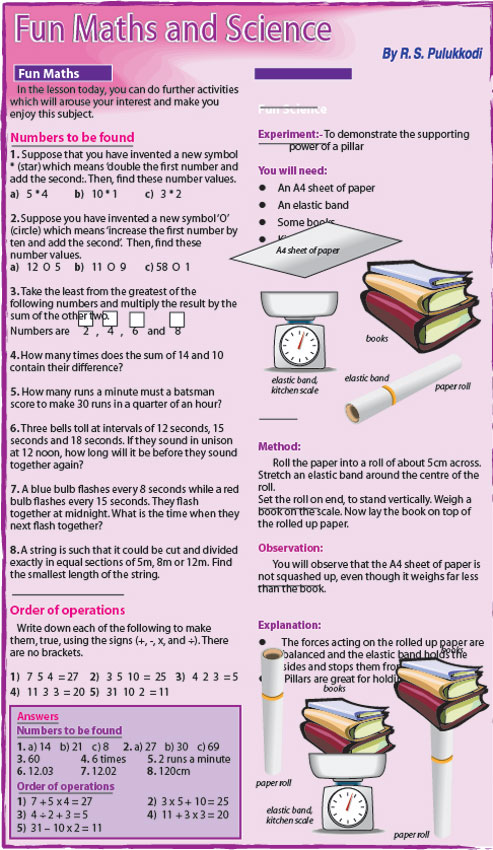Sunday Times 2
Star trek desks: Classrooms for the next generation?
View(s):LONDON (Reuters) – Scientists designing and testing what they hope might become the classroom of the future have found that “Star Trek”-style multi-touch, multi-user desks can boost children’s maths skills.
A three-year project with 400 eight to 10-year olds found that using interactive “smart” desks can have benefits over doing maths on paper, and that pupils are able to improve their fluency and flexibility in maths by working together.
“Our aim was to encourage far higher levels of active student engagement, where knowledge is obtained by sharing, problem-solving and creating, rather than by passive listening,” said Liz Burd of Britain’s Durham University, who led the study.
The research team, whose findings were published in the journal Learning and Instruction, designed software and desks that recognise multiple touches on a desktop using infrared light vision systems.
The desks are built into furniture of the classroom to help encourage more collaboration, and are networked and linked to a main smartboard. A live feed of the desks goes directly to the teacher who can intervene quickly to help a pupil while allowing group work to continue.
Burd’s team found that 45 percent of pupils who used a maths programme on the smart desk system increased the number of unique mathematical expressions they created, compared with 16 percent of those doing it on paper.
Using the new desks helped children work together and solve problems using inventive solutions, the researchers said.
“We found our tables encouraged students to collaborate more effectively,” said Burd. “Such collaboration just did not happen when students used paper-based approaches.”
Follow @timesonlinelk
comments powered by Disqus






















